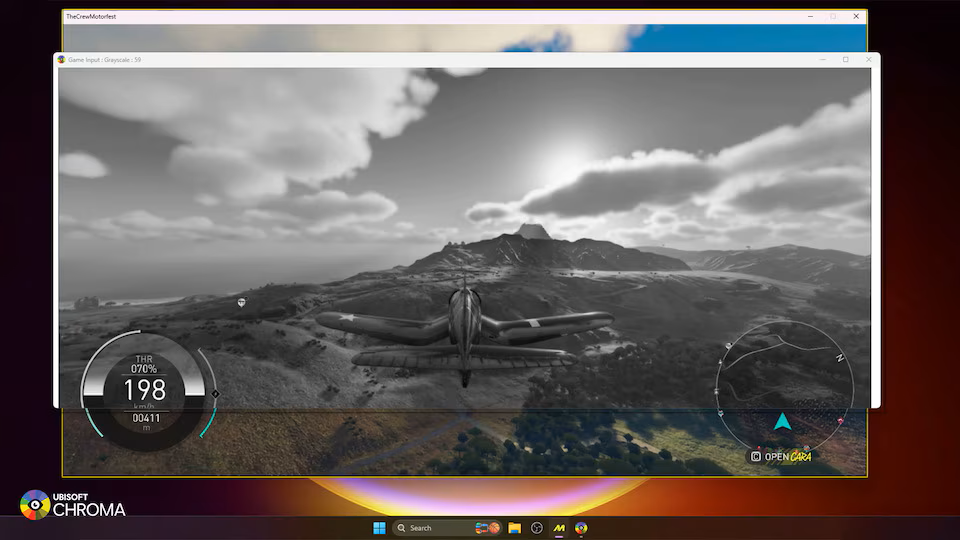
Ubisoft has announced that its internal tool to help developers make colorblind-accessible videogames is available for public use "after several years of internal use and development."
Chroma lets developers replicate the experience of colorblind players in real time, as they actually play the game, by applying a filter over the screen that doesn't degrade game performance.
Colorblindness may well be the most common disability affecting videogame players, with nonprofit Colour Blind Awareness citing statistics that 1 in 12 men, or 8%, and 1 in 200 women, or 0.5%, are colorblind.
Chroma works by putting a filter over a game in real time, letting developers monitor games as they're actually played as opposed to other tools that require developers to see games only in static screenshots or run purely in a colorblind configuration. Chroma can be used on single or dual screens, works with hotkeys, and has a customizable overlay.
"Over the past few years, Chroma has proven to be a highly efficient tool for us at Ubisoft," said Ubisoft Director of Accessibility David Tisserand in a statement. "It has allowed us to assess the accessibility of our games for colorblind players much faster and more comprehensively than ever before. Because we believe accessibility is a journey, not a race, we're thrilled to share Chroma with the entire industry. We invite everyone to benefit from it, provide feedback, and contribute to its future development."
Chroma was developed by Ubisoft's quality control team based in India, with the goal of giving real-time feedback to developers as they actually controlled a game.
Developers interested in downloading or using Chroma for themselves are invited to its Github page, where it's now published under the Apache 2.0 license. The license is described by the Apache Foundation as a vector for developing "reliable and long-lived software products through collaborative, open-source software development."







